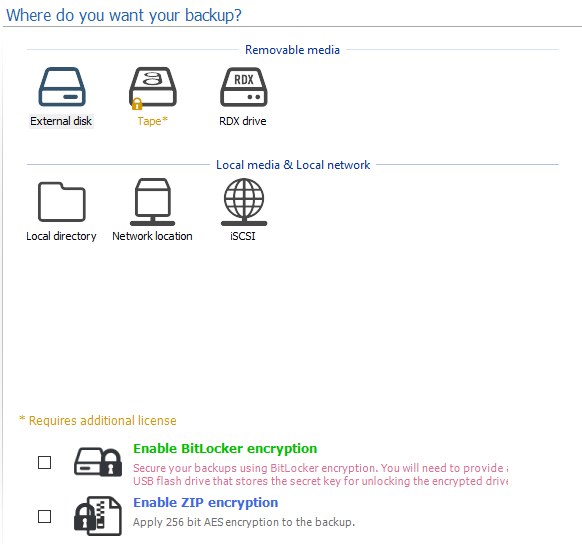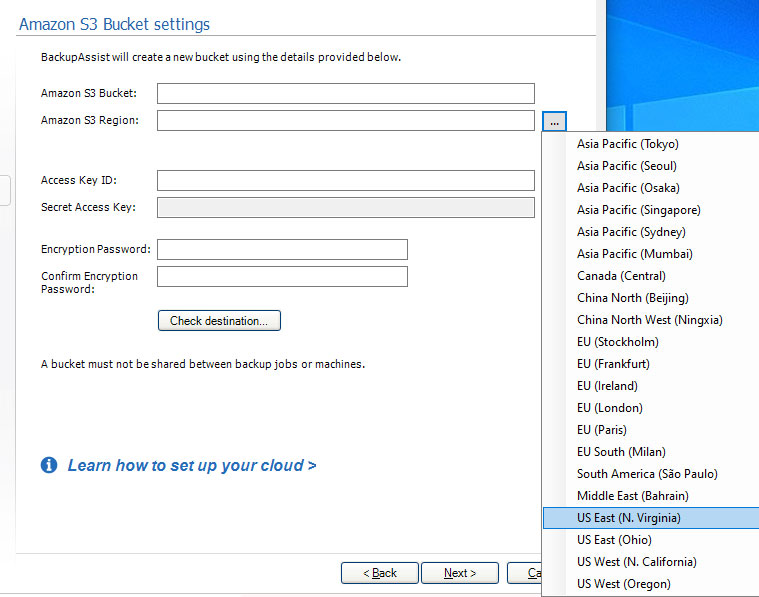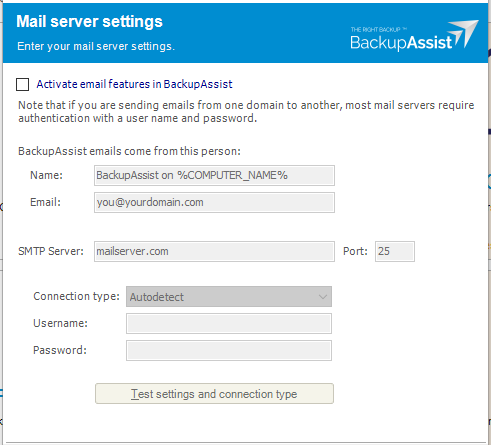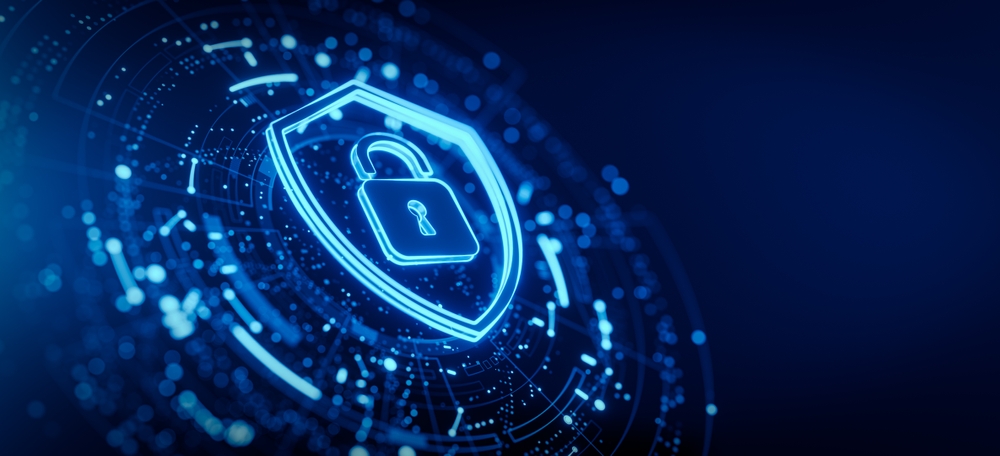TL;DR summary
Your data is your data. That’s one of the underlying principles of how we do business.
BackupAssist Classic provides the following features to help with careful data handling.
| Privacy |
|
| Sovereignty |
|
| Accessibility |
|
| Anonymity |
|
We’ll now elaborate on each of the aspects listed above.
 |
Note: If you are interested in the background context – why we take these approaches – then please refer to our companion article. |
Privacy
BackupAssist Classic has a “choose your own storage” approach, where you can decide where to store your backup data. You can choose a local disk, network share, or even dedicated options like tape.
Because you host your own data, you control who has access to it. And BackupAssist has no way of accessing your data.
For cloud backups, you choose exactly which region you want your backup data to be located – helping you to satisfy relevant regulatory and compliance requirements.
As a security measure, you may also choose to encrypt your backups using a variety of methods to match your needs. Using the encryption feature means that a security breach of your underlying storage will not leak any data.
Cloud backups are ALWAYS encrypted on the client side to ensure privacy, both when the data is at rest in the cloud and in motion while being uploaded. BackupAssist’s cloud backups use Zero-Knowledge Encryption, meaning you and only you can know the password, and there’s no other way to access the data.
Sovereignty
A logical flow-on from the “choose your own storage” approach is that you can control the geographical location of the data. In particular, your cloud backups are in the region(s) you have chosen from your cloud storage provider, and are not limited by BackupAssist.
Accessibility
A key consideration when choosing a backup solution is this: if you have a backup, how easy is it to access and restore the data?
BackupAssist Classic was designed to address this issue.
You can choose amongst multiple different backup methods that use a variety of non-proprietary backup formats.
In addition, your data is yours forever, and you can freely restore it using either BackupAssist Classic (whether in trial or licensed) or a number of different Microsoft and 3rd party tools.
System Protection backups (Virtual Hard Disk – VHD/VHDX format):
- Microsoft and 3rd party tools exist to open and extract information from VHD/VHDX files.
- When set up to use a Data Container, you can copy or archive the entire container with all your backup history to any other location.
File Protection backups (files copied directly to backup storage):
- Backups can be restored directly by accessing the backup files using Windows File Explorer.
- You can take a copy of your backups and archive them separately.
File Archiving (ZIP):
- Numerous 3rd party tools exist to open and extract information from ZIP files.
- You can take a copy of your backups and archive them separately.
Cloud backups are in a proprietary format, but you can access them for free – forever. You will not require a subscription of BackupAssist Classic in order to restore.
Anonymity
The backup report includes some metadata that can identify the server and user information.
If you are concerned about information leakage when optionally selecting to email the job report, then you can choose to use your own SMTP server to ensure that nobody else has access to the reports.
Similarly, when using CryptoSafeGuard, the SMS notification feature is optional, if anonymity is paramount.
Conclusion
BackupAssist Classic provides a high level of data privacy, sovereignty, accessibility and even anonymity. Your data is your data.
Do you have questions about this article? Contact our Client Success team and start a conversation.
Or better still – start your free 30-day trial of BackupAssist Classic today!










